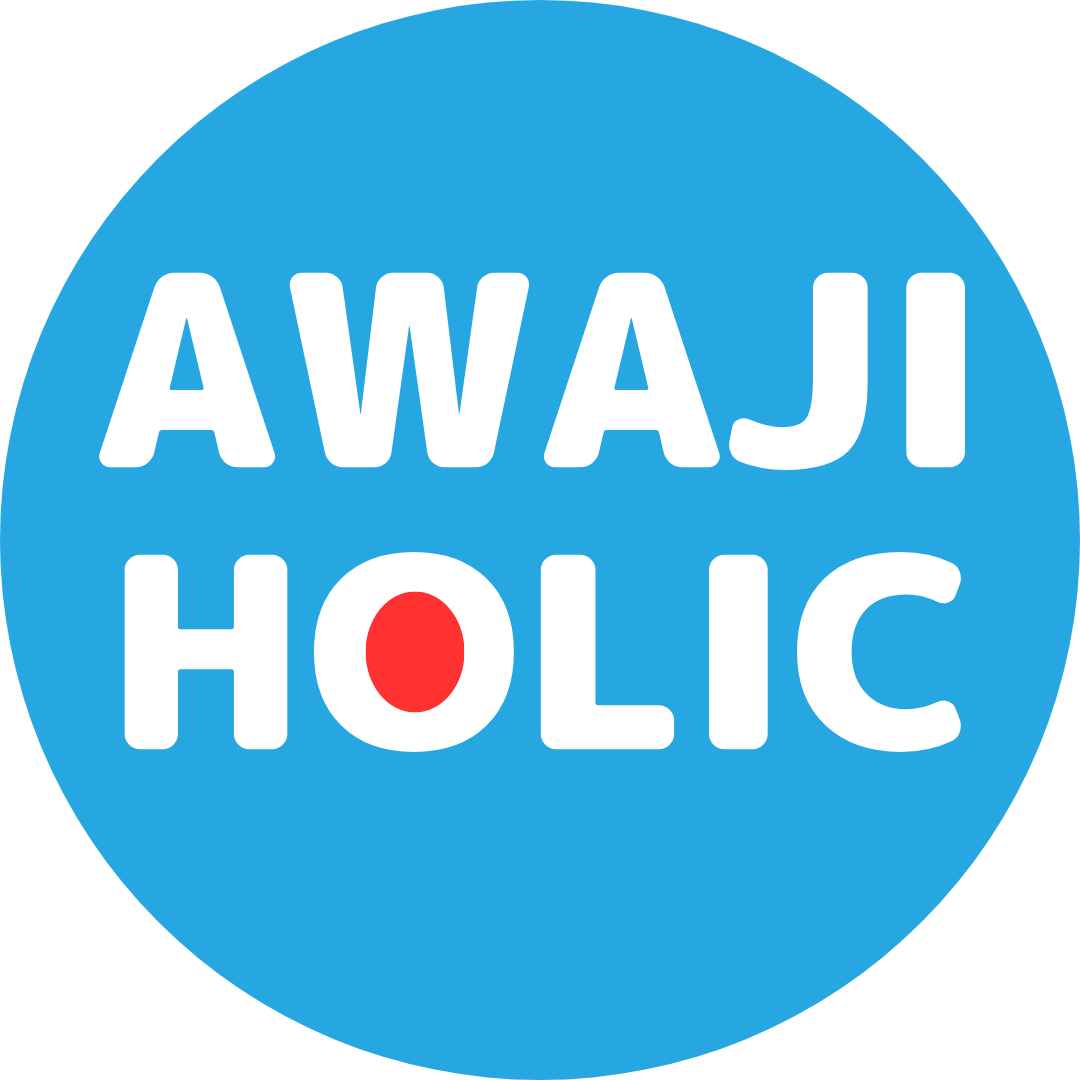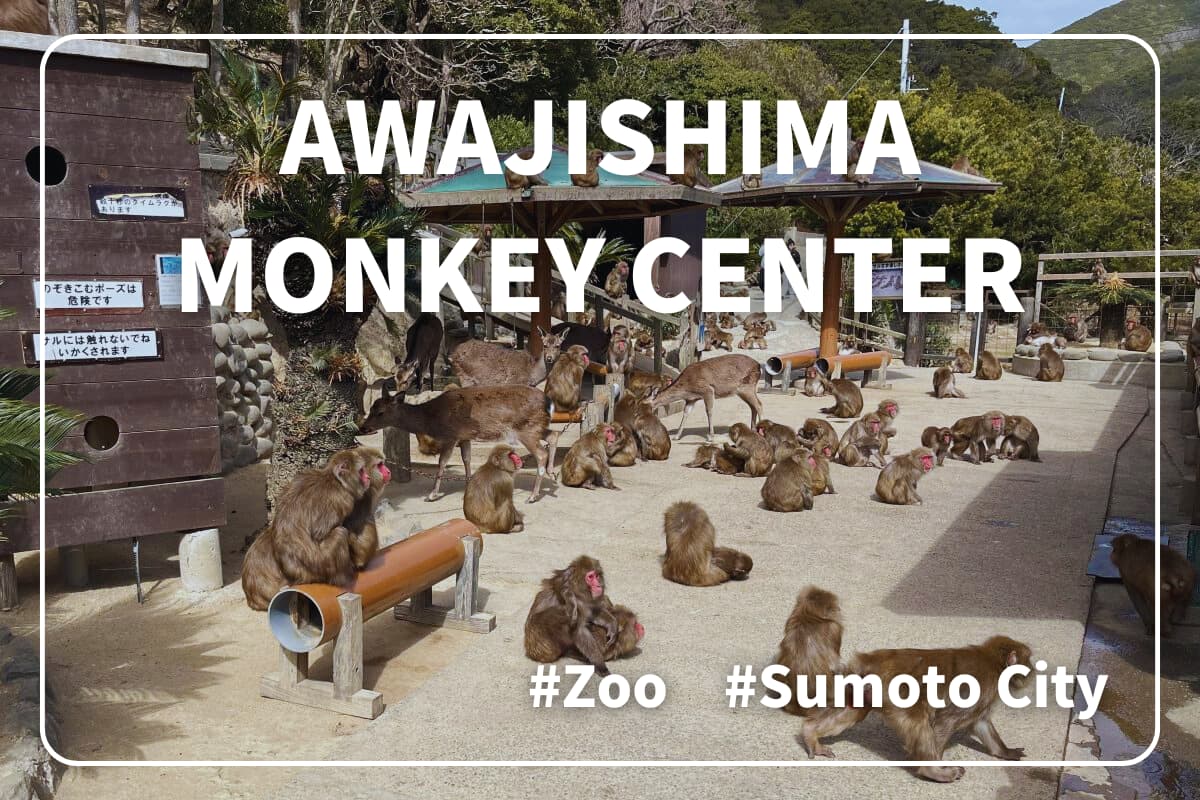Awajishima Monkey Center is a tourist attraction in Minami-Awaji City, Awaji Island, where more than 350 Japanese macaques, commonly known as "Awaji monkeys," live.
The center began feeding them in 1967, which is how they came to be here today. Awaji macaques are characterized by their friendliness compared to other Japanese macaques. They return to the mountains in the evening, so an early visit is recommended.
The Awaji Island Monkey Center also studies the behavior and birth records of the Awaji macaques, making it a valuable place for both animal lovers and researchers.
Please note that the park is closed from September to November as the monkeys go to the mountains.
Contents
Awaji Island Monkey Center Tourist Attractions
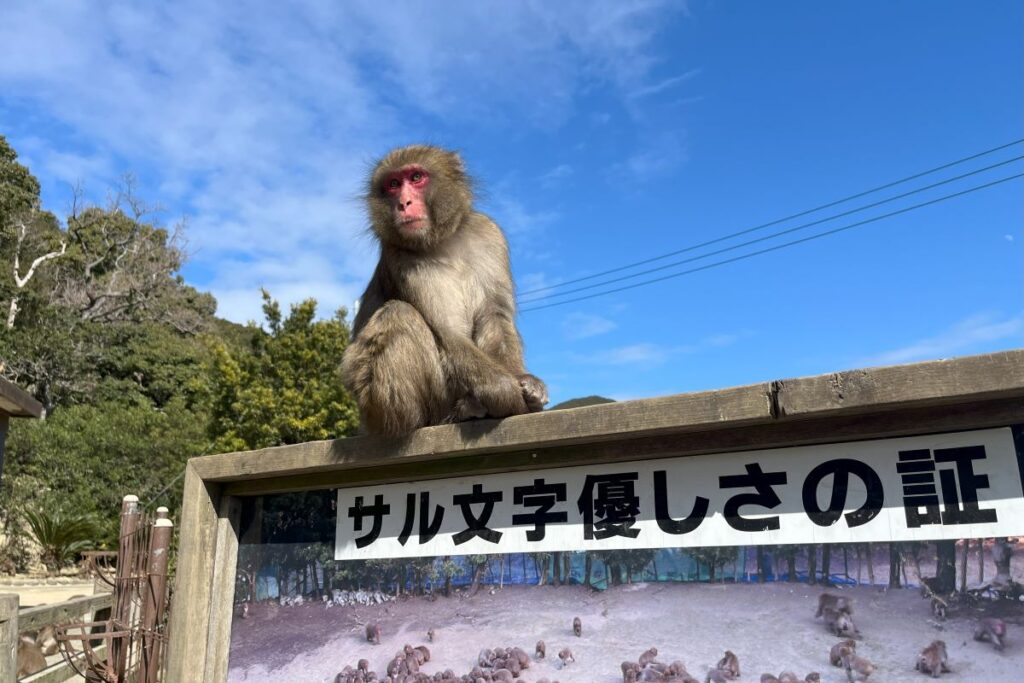
Observe & feed a group of 350 wild Japanese macaques (Awaji macaques)
The Awaji Island Monkey Center is a facility that has been working since 1967 to conserve and coexist with the Japanese macaque (Awaji Island monkey). The center has been protecting the herd of Japanese macaques on Awaji Island, which was once in danger of extinction, by feeding them.
Here, visitors can not only observe 350 wild Japanese macaques (Awaji macaques) up close, but also implement measures to prevent damage from animals, observe their behavior, and accept researchers from Japan and abroad for ecological research. It is also used as a field trip and training site for schools and groups, contributing to social education.
When I visited in early October, there were abundant fruits in the mountains and the Japanese macaques (Awaji macaques) were almost out deep in the mountains, so I could not visit.
I would like to update this article by visiting in February, when the children of Japanese macaques (Awaji macaques) are playing happily!
Awaji Island Monkey Center Facilities
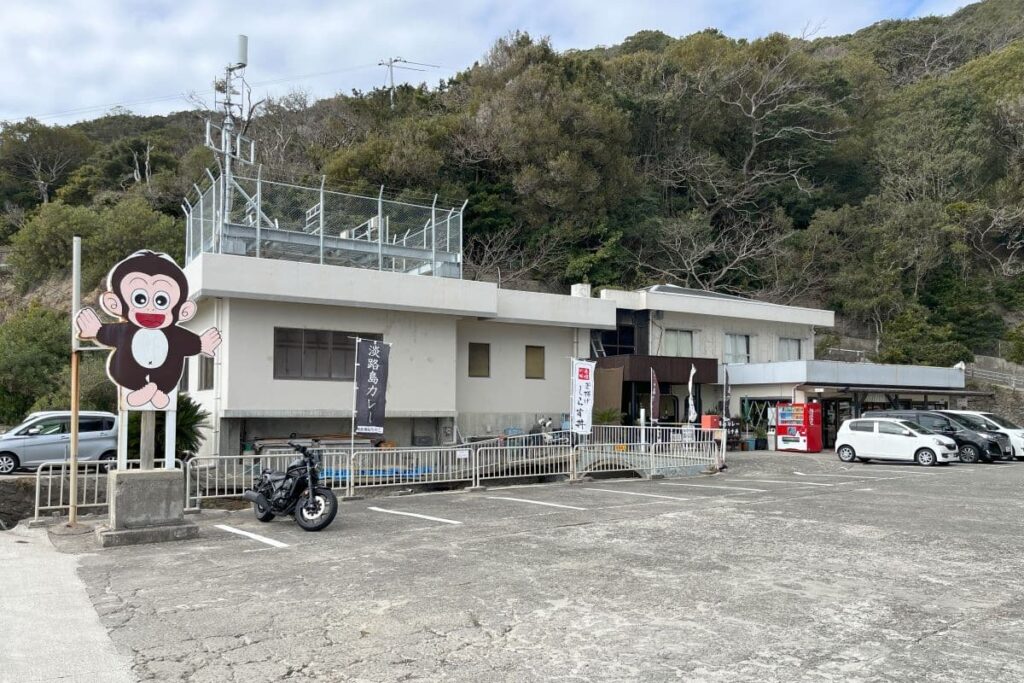
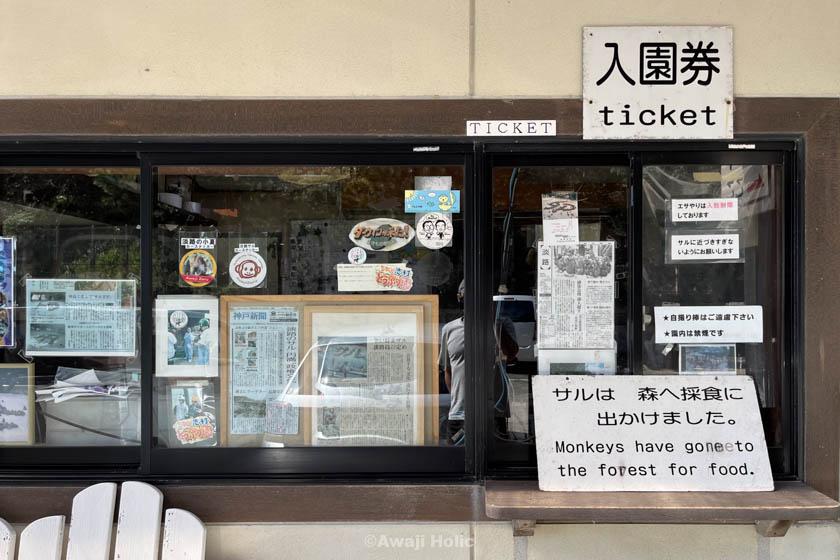
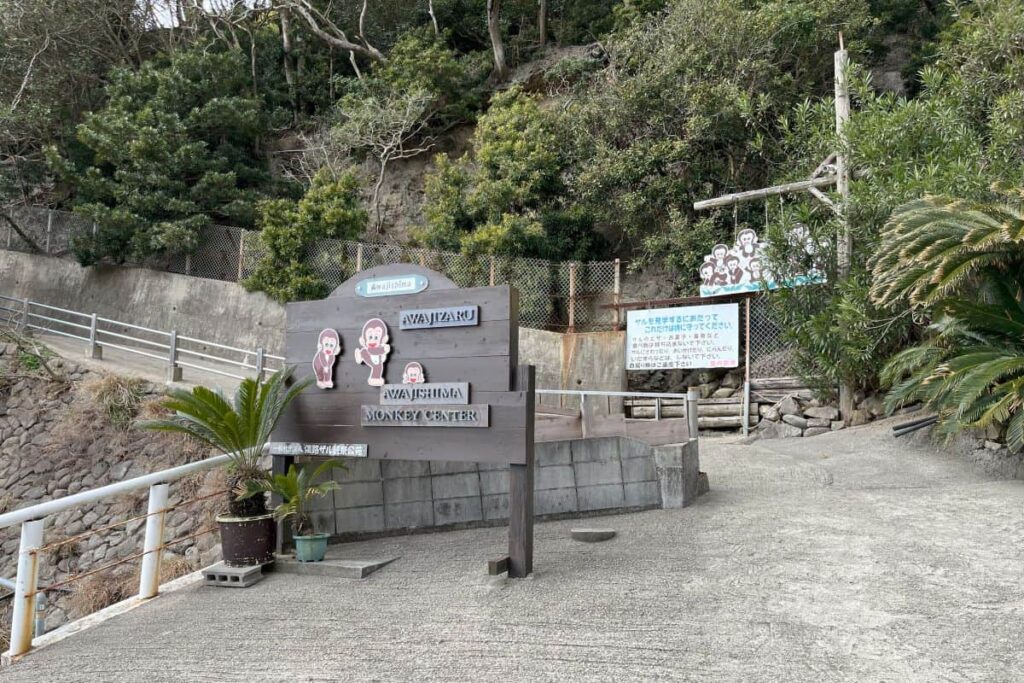
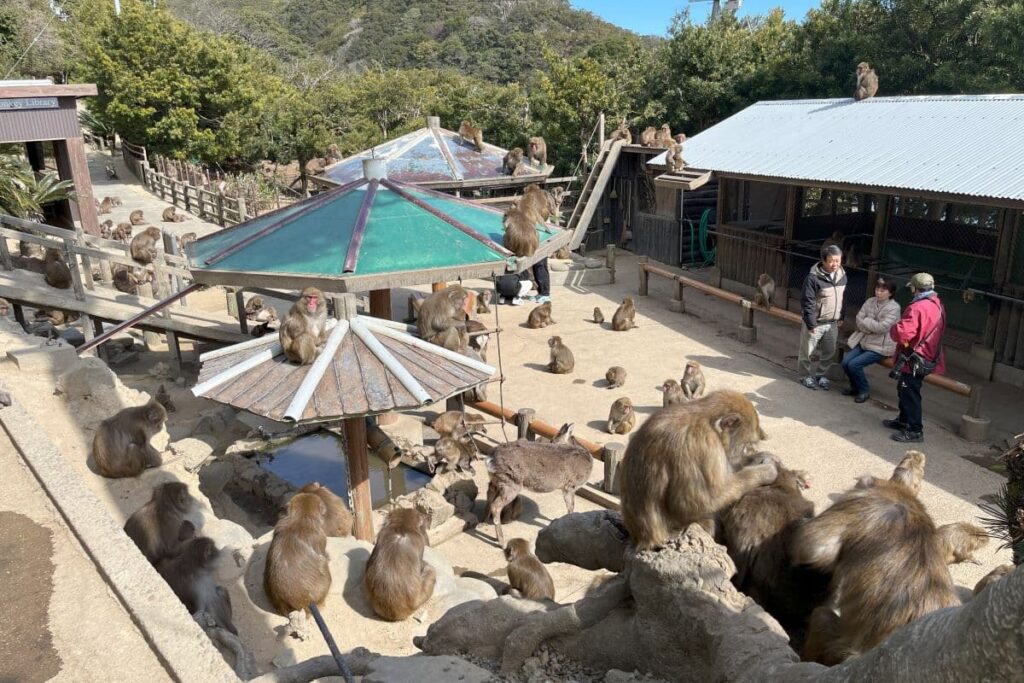
Characteristics of the Japanese macaque (Awaji macaque)
The Japanese macaque population on Awaji Island forms a macaque society with very interesting behavioral characteristics that differ from those of macaques in other areas of Japan.
This group is known for being particularly close and tolerant. They build a cooperative society by protecting the weak or disabled monkeys and taking care of each other.
The characteristics of this group are greatly influenced by the presence of a leader.
Generations of leaders have softened the strict social hierarchy and created an environment where all monkeys get along and help each other as members of the group. The kindness and care of the leaders has made this group a thoughtful society in many ways.
A year in the life of a Japanese macaque (Awaji macaque)
The monkeys are as follows during the year
January: They are at the feeding ground from around 9:00 in the morning until before 5:00 in the evening. On cold and windy days, monkey dumplings can be seen.
February: Cold season. Children play energetically.
March: Season of pollen allergy. Monkeys also suffer from hay fever.
April: Warm and the quietest month of the year.
May: Beginning of the birthing season. Work hours may be delayed around Golden Week.
June: Mid to late peach season. The monkeys' behavior changes.
July: Some monkeys don't come out until the middle of the month to forage for mountain peaches.
August: Many baby monkeys can be seen. Adults are suffering from summer fatigue and go out for autumn harvest at the end of August.
September: The monkeys move deep into the mountains to forage for the harvest from as early as the beginning of the month, and cannot be seen.
October: They forage deep in the mountains and are not available for viewing.
November: They return to their feeding grounds, but it depends on the mountain conditions.
December: They return from the mountains and enter the mating season.
Awaji Island Monkey Center Basic Information
| Name | Awaji Island Monkey Center |
| Address | 289 Hatagumi, Sumoto City, Hyogo Pref. |
| Phone | 0799-29-0112 |
| Official WEB | https://www.yumebutai.co.jp/lang/en.html |
| Opening hours | 9:30-17:00 |
| Closed | Thursdays (open on national holidays and year-end and New Year's holidays) *Closed most of the year in autumn as the monkeys move deeper into the mountains. |
| Admission | Adults 1,000 yen, children 400 yen |
| Parking | Yes (40 spaces) |
| Parking fee | Free |
| Access | By car: 40 minutes from the Saidan-Mihara IC, 45 minutes from the Sumoto IC Public Transportation:- |
